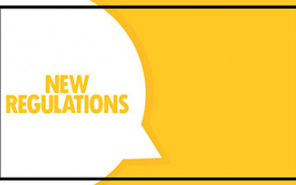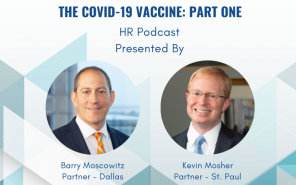Disability and Religious Accommodations for Mask and Vaccination Requirements
By , Kevin M. Mosher • Aug 24, 2021
As COVID-19 cases continue to rise, more and more employers are imposing (or reimposing) mask and vaccination requirements in the workplace. In turn, employees are pushing back against such policies and requesting exemptions and accommodations. Some employees are even presenting information regarding their “rights” to be free from such requirements and accusing their employers of violating the law. Though some employees have legally protected interests that require employers to accommodate them, others are relying on misinformation (probably learned on the internet) to support their refusal to comply with certain COVID-related workplace policies. Today we’ll be debunking some common myths surrounding COVID-19 policies in the workplace.
 MYTH: Asking about an employee’s vaccination status violates HIPAA.
MYTH: Asking about an employee’s vaccination status violates HIPAA.
The Health Insurance Portability and Accountability Act, more frequently referred to as “HIPAA,” prohibits covered entities from sharing individuals’ personal health and medical records without their consent. Covered entities include health plans, most health care providers, and health care clearinghouses. Business associates of covered entities may also be subject to HIPAA privacy requirements, like health plan administrators, healthcare billing agencies, and IT specialists that work with medical records. Notably, employers are not covered (aside from the ways in which they administer group health benefits). On top of that, HIPAA prohibits the disclosure of information—not requests for it.
MYTH: Asking about an employee’s vaccination status violates the ADA.
This is a closer call than the HIPAA myth, but it’s still easy to dispel. The EEOC has clearly stated that asking about an employee’s vaccination status is not a disability-related inquiry for purposes of the Americans with Disability Act (ADA). However, employers shouldn’t pry further than that, as asking an individual why they haven’t been vaccinated could get into disability-related inquiry territory, as one reason individuals may remain unvaccinated is because of an underlying disability or medical condition. Additionally, the EEOC has issued guidance stating that vaccination records are confidential medical information under the Americans with Disabilities Act, which means employers must keep the information confidential and store it apart from the employee’s regular personnel file.
MYTH: Asking an employee who is unable to comply with a mask or vaccination policy due to a disability to provide medical information violates the ADA and HIPAA.
An employee requesting an accommodation excusing them from complying with a mask or vaccination policy is the same as an employee requesting any other accommodation for a disability. It is entirely appropriate for an employer to ask for medical documentation to a) determine whether the employee has a disability covered by the ADA, b) better understand the employee’s limitations, and c) determine a reasonable accommodation.
As discussed above, HIPAA isn’t applicable in these types of situations.
MYTH: Employers must permit employees who cannot comply with mask or vaccination policies to enter the workplace.
An employee who cannot comply with mask or vaccination requirements due to a covered disability or a sincerely held religious belief is not entitled to simply ignore the requirements as though they don’t exist—they are entitled to a reasonable accommodation that will permit them to perform the essential functions of their job. To mitigate or eliminate the risks associated with having unmasked and/or unvaccinated employees in the workplace, employers may offer accommodations like remote working, isolated workspaces, or unpaid leaves of absence to employees until it is safe for the employee to return the workplace.
HR Legal Resource
Join myHRgenius and receive direct counsel from some of the most trusted and respected lawyers within Labor & Employment at Thompson Coe. Our Thompson Coe team monitors developments in HR laws and how they impact employers and employees throughout the country. By subscribing to the myHRgenius legal service program, you will have access to HR legal counsel, webinars, primers, summaries, and podcasts on all things supporting HR. Visit myhrgenius.co or call 651-389-5000.







